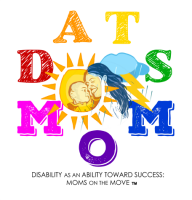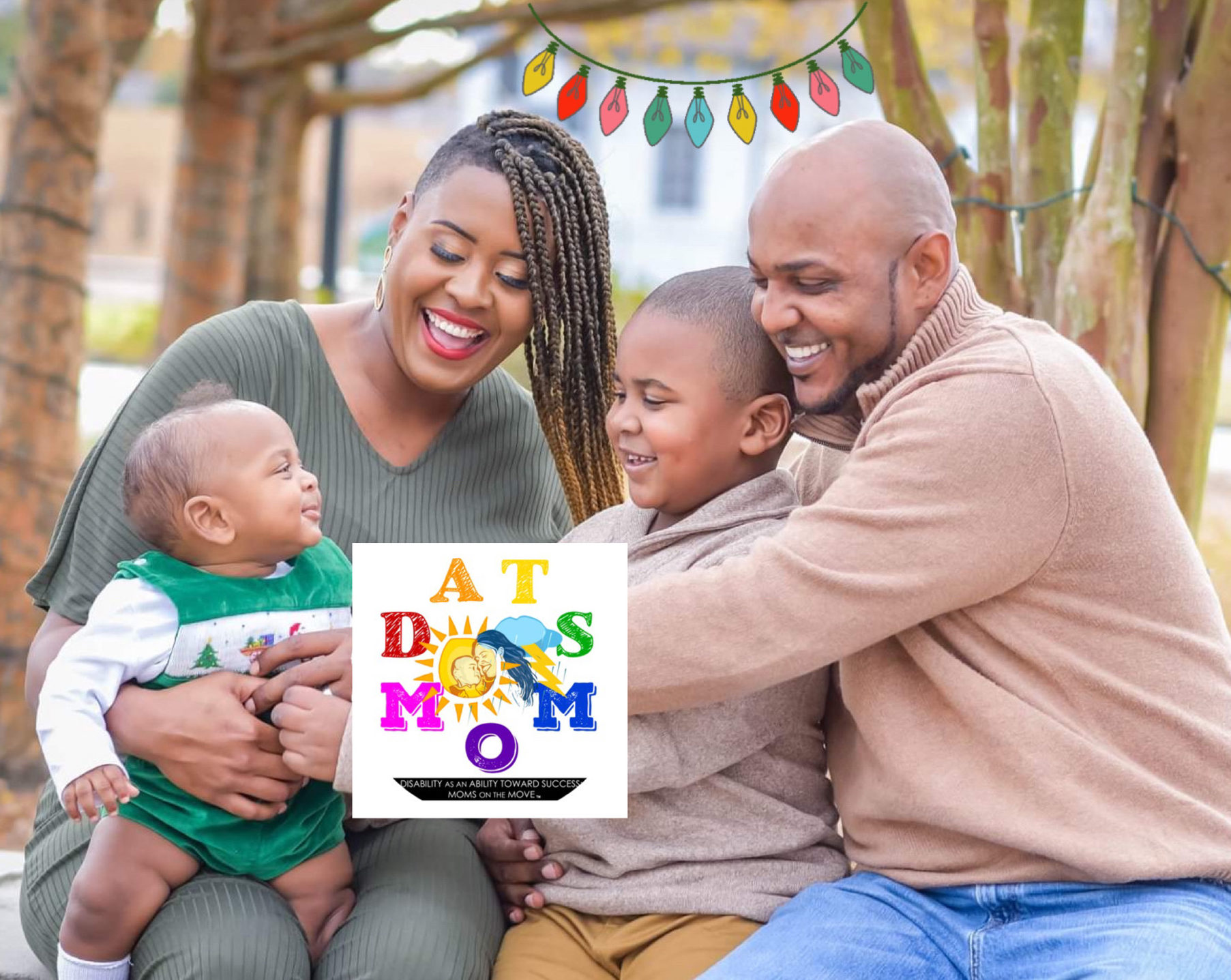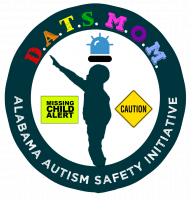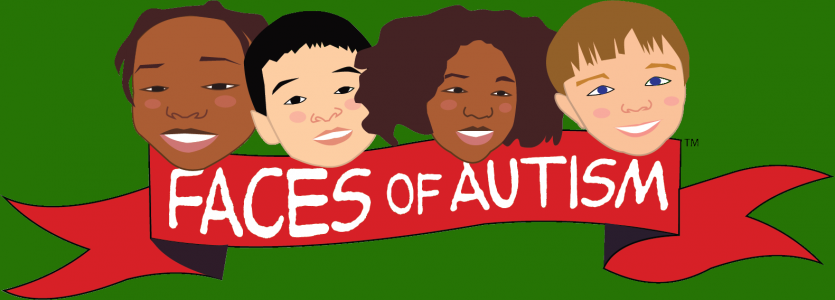The following is the complete version of the Q&A Feature in River Region Parents Magazine April 2020
Associate Publisher Gena Hill e-mailed the following questions and my responses are below:
Tametria Conner Dantzler
CEO and Founder of Disability as an Ability Toward Success: Moms on the Move, also known as
D.A.T.S.M.O.M.
Husband, Andy
Children, Conner 6 yrs and Anthem 1 yr
Tametria, you are a go-getter and you’re a very fast learner. How did your personality help you in getting a diagnosis of Autism for your son? I’m sharp, organized and tenacious, so I knew that getting a diagnosis swiftly and beginning therapy would be critical to Conner’s progress. Our brains are mostly fully developed by age 5, so I wanted to establish therapy targeting his deficits while there was still time for optimal progress potential. I have always been a voice for the voiceless and I have never been afraid to ask questions and dig for answers, so it was only natural for me to become my son’s advocate. I did not wait on experts, like his pediatrician at the time, who did not want to make a referral for an evaluation because he felt boys develop slower than girls and I shouldn’t be concerned, even though I expressed my concerns of Conner no meeting milestones. I made the appointment myself. I researched Alabama Early Intervention services and got Conner enrolled at 15 months old and he had an autism diagnosis at 18 months old. I realized I’m an expert. No one knows Conner better than me, from his strengths, triggers to his deficits. I self-educated myself on autism and best practices for educating him and living with him. We enrolled (as a family) into the autism research program and parent trainings at the Marcus Autism Center. I drove from Montgomery to Atlanta every week for 26 weeks. I had no prior knowledge. Learning how to quickly adapt to Conner’s needs and getting on his level and then building upon that was also to the progress that I’m seeing now at age 6, verses age 2.
How have you grown as a person since Conner has been born? Absolutely. I’m not the person I was prior to having a child with a different ability. My perspective has broadened. I have more patience and empathy. Conner has helped me learn how to creatively teach using demonstrative examples of concepts and incorporating original songs and music with learning. I’m a natural teacher and I enjoy teaching my own children. I had a recent conversation with a parent about how I, like many parents, would look at child having a tantrum in the grocery store, hitting or spitting on his/her mom and think “OMG! This mom cannot control/discipline her child. Shame on her!” It never dawned on me, until I had the same experience with my son, that the child may have a sensory processing disorder and behavior and social deficits that impede on the child’s ability to comprehend and communicate as well as self-regulate all the stimuli inside a store. I also have a new D.A.T.S.M.O.M. family and network of disability professionals and service providers I would not have if Conner was not on the spectrum.
The diagnosis of your son, Conner, led you to founding a 501c3 organization that assists parents of children on the autism spectrum. Tell us about D.A.T.S.M.O.M. and how this has helped you in your own parenting journey. The struggles and successes of navigating along this new journey and “figuring it out” led me to founding Disability as an Ability Toward Success: Moms on the Move, also known as D.A.T.S.M.O.M. The goal is to provide a platform to help parents shift their children’s disability into an ability by connecting them to resources and equipping them with the knowledge and tools necessary to become an effective advocate for their child by providing free group and individual training, family enrichment activities and services. With a focus on culturally relevant support, breaking down educational and access barriers, this organization is here to help parents see themselves as experts who belong at the table where decisions are being made about their children’s outcome and service delivery plans. I believe that every child has an ability toward success, if given the opportunity to exposure and appropriate support from parents and professionals.
How would you describe your parenting style? Child-led, with guidance. I am a facilitator. I’m going to help pull out what’s already inside of Conner and Anthem. I’m going to listen to them. I want to teach them how to express themselves in their own ways, how to effectively deal with their thoughts, emotions and behaviors based on their needs. I’m a communicator and I talk to my kids more than I discipline them. I do not punish them for being kids and doing what kids do. I never make them feel like an inconvenience or like they are always doing something wrong. I want my kids to know I want them in my life, they are my priority, they are loved, they are worth my time. I want them to know they always have access to me and that I am here for them no matter what.
Is life much different going from one child to two? I thought I was already busy, until child number two came along lol I commend mothers who have more than two kids. They are the real MVP’s!! I have a greater joy now. I enjoy watching Conner and Anthem engage with one another. They play together. Anthem is so vibrant and is helping Conner further develop his communication and social skills. Having a child with autism, we knew it was chance our next child may have it also. We knew what to pray for before, during and after giving birth to Anthem and that was for Anthem to have a mind (brain) of Christ that operates above optimal level with no deficiencies. God granted our request. And to see that manifestation and the bond Conner and Anthem share is nothing short of a miracle.
Motherhood is one of the most significant jobs a woman can have. Have you ever thought, “gosh I can’t do this?” Motherhood is one of the most significant ministries a woman can have. This is not a job. There is no supervisor and handbook. You clock in and out of a job with the option to leave your work at work and let’s not forget you get paid for working a job. None of this applies to motherhood. Nurturing my children is a full fledge ministry and the seeds I’m planting and time I’m investing will cultivate into a plentiful harvest. I planned to be a mother, just as a planned most of the events in my life, so this was another strategic plan I executed. I knew from the beginning I was capable and equipped to shape and mold a life, two lives to be exact, that were birthed from me. I never once thought I can’t do this. Can’t is not in my vocabulary. “Figure it out,’’ is in my vocabulary. Motherhood is about figuring it out and what I call God’s Triple Threat: His Favor, Grace and Mercy. Those two principles (figuring it out and God’s Triple Threat) are what propel me to continue this journey.
Who is the person who influenced your life the most? Dr. Clarice Ford, my undergraduate mentor
What have you sacrificed since becoming a mother? My career, first and foremost. Becoming a news anchor/reporter was my dream since age 16. Not only did I accomplish being a week-day prime-time slot anchor and award-winning investigative journalist, but at the time I decided to resign from TV news, I had just earned a national award for my investigation that made national news about the pastor who contracted HIV. I had goals of continuing to a larger market, never thinking I would have a child that required my full undivided attention and time commitment. That meant a loss of income which resulted in a lot of luxuries being eliminated. Hair, nails and make-up may be a priority for a lot of mothers and some women even identify their self-worth with these surface beatifications, but I let those things go and it has made me become so free and in tune with myself. I do not regret leaving my career to invest my time, energy and very being into my children. It’s an honor. The Lord continues to make a way out of no way and enable provision for my vision, even without an income. I went from advocacy journalism to disability advocacy, not only for my son, but hundreds of children like Conner around the state and Southeast. I’m still a voice, helping to make decisions that affect children with disabilities. I serve in a governor’s appointed position on the state autism council and state early intervention council.
What is something you hope your children are learning from watching you? I hope my children watch and learn the way I develop talent, both my own and others, in other words, my natural coaching and mentoring ability. I hope they learn and develop my fearlessness, how I develop a relentless pursuit toward goals and how I purse passion and purpose. I hope they learn how I tapped into the superhero inside of me and didn’t look for anyone else to save me and how I tapped into my power while connecting to the power source, which is Jesus Christ.
Any advice for new parents? Do not fear walking into the unknown. I had no idea where this new journey would take me, but I literally took one step at a time and created my own path, our path. Another word of advice is to remember it’s not a matter of “if,” but “when.” Your curveball may not be an autism diagnosis, but it will be something. That’s just life. No one has a straight-line journey. We all have twists and turns, but it’s about continuing to move forward, not looking back and not being scared to navigate those twists and turns. It’s still your path, your truth and your journey. Own it and make it a fulfilling journey. My last tip is to do what you can and reach who you can to the best of your ability and feel accomplished with that. You don’t have the same grace I have to do what I do and I don’t have the same grace that you have to do what you do and that doesn’t make either one of our journey’s more or less than each other’s.
To read the printed article, please click this link https://issuu.com/keepsharing/docs/rrp_apr20_digi



